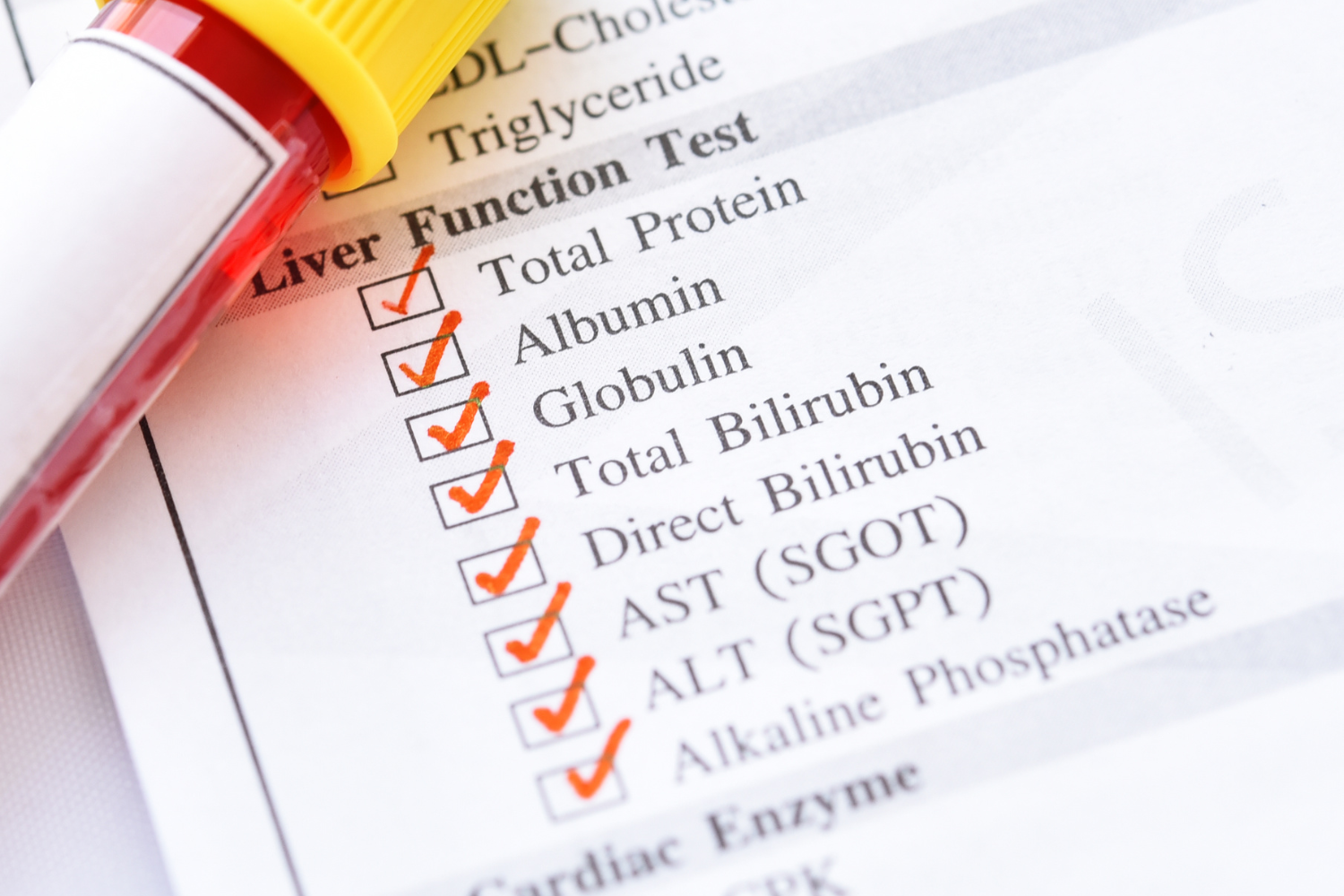Doctors often check liver enzyme levels during routine liver function tests because changes can signal liver injury, liver inflammation, or conditions like fatty liver disease and alcoholic liver disease. These enzymes rise when the liver is under stress, making them important markers for abnormal liver enzymes.
Since alcohol consumption is one of the most common causes of elevated liver enzymes, questions about drinking alcohol with elevated levels often come up. Understanding the connection between alcohol intake and liver health is key, especially when discussing risks like alcohol related liver disease, liver cirrhosis, and long-term damage from excessive alcohol consumption or binge drinking.
What Elevated Liver Enzymes Mean for Your Health
When liver enzyme levels return higher than normal, it often indicates that the liver is under stress. Doctors look at these results to see if there is liver inflammation, early liver injury, or signs of long-term conditions like fatty liver disease or alcoholic fatty liver disease.
Common Causes of Elevated Enzymes
Several health issues and lifestyle factors can lead to abnormal liver enzymes:
-
Alcohol use: Frequent or heavy drinking can cause alcohol related liver disease.
-
Fatty liver disease: Includes both nonalcoholic fatty liver disease and alcoholic fatty liver disease.
-
Hepatitis: Such as viral hepatitis, which damages liver cells.
-
Certain medications: Some drugs can stress the liver and lead to elevated liver results.

How Doctors Diagnose the Underlying Issue
To determine the cause of elevated liver enzymes, doctors rely on a combination of blood tests, including a liver panel, and sometimes advanced laboratory tests for enzymes such as alanine transaminase, aspartate transaminase, and alkaline phosphatase.
Imaging scans may be ordered to look at liver status, and a detailed medical history helps identify risk factors such as smoking and alcohol consumption, body mass index, and medication use.
How Alcohol Affects the Liver When Enzymes Are High
Alcohol intake may further stress the liver when enzyme levels are already elevated, which could impact liver health. For people with fatty liver, alcoholic hepatitis, or other underlying issues, continued alcohol use increases the risk of liver cirrhosis and long-term health problems.
Moderate alcohol consumption may pose additional risk for individuals with elevated liver enzymes, depending on their underlying liver condition and overall health.. The liver has less capacity to process toxins, and continued alcohol intake may push the organ toward liver failure or even the need for a liver transplant if the damage progresses.

Can You Drink Alcohol With Elevated Liver Enzymes?
When elevated liver enzymes appear on blood tests, one of the first questions people ask is if it’s safe to continue drinking alcohol. Doctors stress that even moderate alcohol consumption can worsen liver health once there are signs of stress or liver injury.
What Medical Guidelines Say
Most experts agree that people with abnormal liver enzymes should avoid alcohol completely, while some guidelines allow limited intake only under close supervision. The decision depends on the person’s liver status, overall health problems, and risk of progressing to alcoholic liver disease or liver cirrhosis.
|
Recommendation Type |
What Experts Advise |
Possible Risks |
|
Complete Abstinence |
Stop alcohol consumption entirely when enzymes are high. |
Lowers chance of worsening liver damage or developing alcoholic hepatitis. |
|
Limited Intake |
In rare cases, very low alcohol dosing may be allowed after thorough liver function tests. |
Even small amounts of alcohol may contribute to sustained elevations in ALT and GGT levels in sensitive individuals or those with pre-existing liver issues. |
Factors Doctors Consider Before Advising
Doctors look at the cause of enzyme elevation, such as alcohol abuse, viral hepatitis, or nonalcoholic fatty liver disease. They also weigh the severity of the enzyme changes, underlying risks like cardiovascular disease or blood pressure issues, and the person’s overall health. This includes drinking patterns, body mass index, and other lifestyle factors, such as coffee consumption, smoking, and alcohol consumption.
Safer Choices and Lifestyle Changes for Liver Support
Individuals with elevated liver function results can protect their health through lifestyle changes that reduce stress on the liver. These steps are part of standard advice in clinical nutrition and public health approaches.
Reducing or Eliminating Alcohol
Lowering alcohol use or avoiding it completely gives the liver a chance to repair itself. For some individuals, liver enzyme levels may improve after making supportive lifestyle changes and under medical supervision.
Supporting Liver Recovery With Diet and Habits
Supporting liver recovery involves focusing on hydration, consuming balanced meals, and minimizing exposure to toxins. Staying well-hydrated supports overall metabolic and organ function, including the liver, while consuming healthy foods reduces the risk of triggering oxidative stress.
Doctors often suggest limiting processed foods, managing blood pressure, and keeping alcohol consumers aware of risk factors like hazardous drinking or poor diet. Over time, healthy lifestyle choices may support liver health and reduce stress on the organ.

When to Seek Medical Advice Immediately
Some signs mean you should get medical help without delay if you already have elevated liver enzymes. These symptoms can point to serious liver damage or complications that go beyond just the liver and may raise the risk of liver failure or other adverse health effects.
Symptoms That Require Urgent Attention:
-
Jaundice (yellowing of the skin or eyes)
-
Severe fatigue that interferes with daily life
-
Abdominal swelling from fluid buildup
-
Confusion or changes in mental clarity
Monitoring Liver Enzymes Over Time
Doctors usually recommend regular liver function tests and follow-up visits to track liver enzyme levels. Monitoring helps determine if elevated levels improve with reduced alcohol intake, changes in drinking patterns, or lifestyle adjustments. Staying on schedule with blood tests and checkups is critical for spotting ongoing liver inflammation or progression to conditions such as alcoholic liver disease or liver cancer.
Doctor Guidance Is Key to Protecting Your Liver
In most cases, avoiding alcohol is the safest option, but the final decision should always come from a healthcare provider who knows your full medical history. Working closely with a healthcare provider is essential for managing liver health and understanding your personal risk factors.
For those seeking to support their overall wellness, products like DHM with NAC can complement healthier choices. However, medical advice remains the foundation for protecting long-term liver health.
Frequently Asked Questions
Can occasional drinking cause elevated liver enzymes?
Yes, even small amounts of alcohol drinking can raise liver enzyme levels in sensitive individuals.
How long should you avoid alcohol if your enzymes are high?
Doctors usually recommend stopping alcohol use until liver enzyme levels return to normal alt levels.
Will my liver enzymes return to normal if I stop drinking?
In many cases, elevated liver enzymes treated with abstinence improve, especially when caught early.
Are there any types of alcohol safer for the liver?
No, all forms of alcohol consumption can harm the liver when enzymes are already elevated.
How do I know if elevated enzymes are from alcohol or another cause?
Only clinical research, blood tests, and a doctor’s evaluation can separate alcohol from other causes like nonalcoholic fatty liver disease or viral hepatitis.
References
-
Chalasani, N., Younossi, Z., Lavine, J. E., Charlton, M., Cusi, K., Rinella, M., Harrison, S. A., Brunt, E. M., & Sanyal, A. J. (2018). The diagnosis and management of nonalcoholic fatty liver disease: Practice guidance from the American Association for the Study of Liver Diseases. Hepatology (Baltimore, Md.), 67(1), 328–357. https://doi.org/10.1002/hep.29367
-
Costanzo, S., Di Castelnuovo, A., Donati, M. B., Iacoviello, L., & de Gaetano, G. (2010). Alcohol consumption and mortality in patients with cardiovascular disease: a meta-analysis. Journal of the American College of Cardiology, 55(13), 1339–1347. https://doi.org/10.1016/j.jacc.2010.01.006
-
Giannini, E. G., Testa, R., & Savarino, V. (2005). Liver enzyme alteration: a guide for clinicians. CMAJ : Canadian Medical Association journal = journal de l'Association medicale canadienne, 172(3), 367–379. https://doi.org/10.1503/cmaj.1040752
-
Rehm, J., Baliunas, D., Borges, G. L., Graham, K., Irving, H., Kehoe, T., Parry, C. D., Patra, J., Popova, S., Poznyak, V., Roerecke, M., Room, R., Samokhvalov, A. V., & Taylor, B. (2010). The relation between different dimensions of alcohol consumption and burden of disease: an overview. Addiction (Abingdon, England), 105(5), 817–843. https://doi.org/10.1111/j.1360-0443.2010.02899.x
-
Singal, A. K., Bataller, R., Ahn, J., Kamath, P. S., & Shah, V. H. (2018). ACG Clinical Guideline: Alcoholic Liver Disease. The American journal of gastroenterology, 113(2), 175–194. https://doi.org/10.1038/ajg.2017.469
-
Usuda, D., Kaneoka, Y., Ono, R., Kato, M., Sugawara, Y., Shimizu, R., Inami, T., Nakajima, E., Tsuge, S., Sakurai, R., Kawai, K., Matsubara, S., Tanaka, R., Suzuki, M., Shimozawa, S., Hotchi, Y., Osugi, I., Katou, R., Ito, S., Mishima, K., … Sugita, M. (2024). Current perspectives of viral hepatitis. World journal of gastroenterology, 30(18), 2402–2417. https://doi.org/10.3748/wjg.v30.i18.2402
